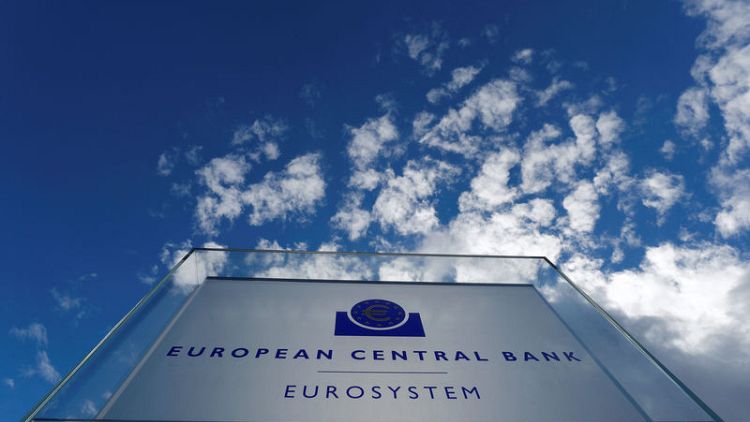By Bart H. Meijer
AMSTERDAM (Reuters) - A multi-tier deposit rate at the European Central Bank would favour certain lenders over others and policymakers should avoid such a market distortion, the head of the Dutch central bank said on Thursday.
With rates in negative territory since 2014, some banks in northern Europe are increasingly complaining about the cost of this charge on their excess liquidity, and ECB chief economist Peter Praet said the ECB would look at whether exempting them from some of this is warranted.
"No matter what form (of tiering) you propose, you are exempting banks with a certain business model from the costs of negative rates and you are implicitly telling all banks with a different business model that they will bear these costs for longer," Klaas Knot, who sits on the ECB's Governing Council, told reporters.
"We should stay far away from such effects," Knot, an outspoken policy hawk said, adding that bank profitability is secondary to the ECB's policy objective.
While Knot said it was good for the ECB to revisit this topic from time to time, he did not expect policymakers to come to a different conclusion now than they had earlier, when they found that negative rates are not excessively hurting banks.
Knot's comments illustrate a growing debate within the ECB as a recent economic slowdown implies that rates will stay negative for years to come and banks with excess liquidity, mostly big northern lenders, will have to keep paying the ECB for parking cash overnight.
As banks transmit the ECB's policy measures to the real economy, weak bank profitability risks eroding the effectiveness of monetary policy, some critics of the negative rates argue.
Austrian central bank chief Ewald Nowotny, another member of the ECB's Governing Council, said the debate over the side effects was healthy and the ECB should look at how Switzerland and Japan dealt with negative rates.
"I would like to see a certain mitigation," Nowotny said in Vienna, referring to the side effects of negative rates.
The root cause of the problem is that growth is slowing more than expected, forcing the ECB to reverse course and put plans for policy normalisation on hold, with inflation still far below its objective.
"The reasons why inflation is not where we want it to be are mostly beyond our influence: globalisation, the digitalisation of retail," Knot said. "Monetary policy can’t really help any more than we have done."
Knot also suggested that the nature of inflation may have changed since the crisis.
With years of ECB stimulus, borrowing costs are at rock bottom and employment is record high. Yet the employment gains are not translating into higher consumer prices, a puzzling development.
"The crisis has shown that we probably understand even less about how inflation works than we thought," Knot said.
(Additional reporting by Kirsti Knolle, writing by Balazs Koranyi, editing by Larry King)



